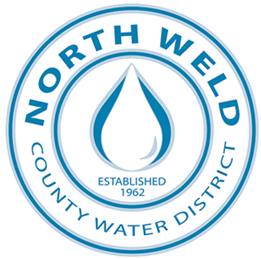2022 November Election Information for Commercial Customers
VOTERS DECIDE!
To ensure that current customers continue to receive reliable water services, NWCWD needs to make significant investments in infrastructure.
This November, voters will determine whether to fund these investments through rate increases or property taxes. The November ballot includes a 5-mill property tax increase to raise $5 million annually, which would cost a homeowner $13.33 per month on a home valued at $450,000.
Funding Improvements through Property Taxes
Pros for a 5 mill property tax increase:
- The District could build required projects faster and make reliability improvements sooner.
- The District could make immediate investments to help avoid a breakdown in the system, which would be expensive to fix in the future.
- New revenue could also be used to keep rates lower.
Cons for a 5 mill property tax increase
- Property tax rates will increase, making tax payments more expensive.
- The amount of tax paid will be determined by property valuations, which have increased in recent years.
- The tax would not sunset.
Funding Improvements through Rate Increases
Pros for rate increases
- The property tax mill levy would not change.
- Water rate increases would be spread out over 10 years to minimize impacts on customers.
Cons for rate increases
- Rates will increase by a minimum of 7% each year for 10 years, making water services more expensive:
- Current Residential Rate: $4.15 per 1,000 gallons
- Anticipated 2033 Rate: $8.16 per 1,000 gallons
- Because rate increases would be spread out over time, NWCWD would make slower investments in the system over the next decade.
